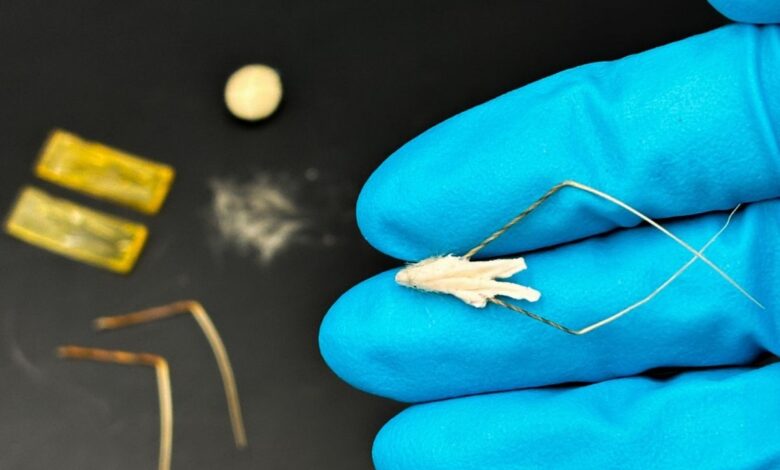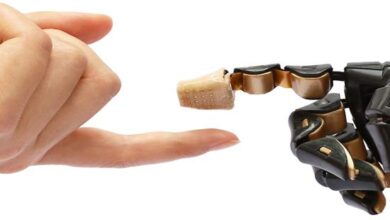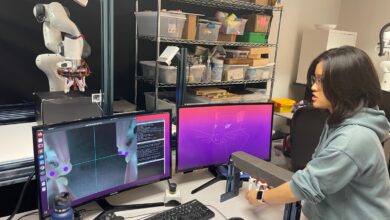HybriBot as a Biodegradable Vector for Reforestation

Researchers at Istituto Italiano di Tecnologia (IIT-Italian Institute of Technology) collaborated with the University of Freiburg to create a biohybrid robot. The robot consists of a flour-based capsule produced using 3D microfabrication techniques and two natural oat fruit appendages that can move in response to air humidity. This novel technology, called HybriBot, could accommodate natural seeds from various plants, acting as a biodegradable vector for reforestation. HybriBot is reported in a recent study published in the international scientific journal Advanced Materials.
Image Credit: Istituto Italiano di Tecnologia
The researchers have previously done successful testing using tomato, chicory, and willow herb seeds, the latter being one of the bees’ favorite flowers from which the plants germinated. The invention has a patent application pending.
The study is part of the European project i-Seed, which is being led by Barbara Mazzolai, Associate Director for Robotics at the IIT, and the innovation ecosystem RAISE (Robotics and AI for Socioeconomic Empowerment), which is being supported by Italy’s National Recovery and Resilience Plan.
Isabella Fiorello, the study’s first author, is currently a Junior Principal Investigator at the University of Freiburg’s Cluster of Excellence Living, Adaptive, and Energy-autonomous Materials Systems (livMatS), following a research term at the IIT in Mazzolai’s lab.
The invention represents yet another solution identified by the IIT’s Bioinspired Soft Robotics laboratory, a pioneer in robotics inspired by living organisms, particularly plants, to address climate change issues such as the need for large-scale reforestation and biodiversity preservation.
The artificial HybriBot system blends a natural component—oat fruit appendices—with an artificial one that serves as a seed transport vehicle while retaining the natural specimen’s mobility and interaction capabilities with its surroundings. When exposed to moisture, the oat appendices migrate.
They rotate, intersect, and store elastic energy, which, when released, propels the capsule. Their motions continue until, without control, the plant enters a fissure in the ground and pauses, allowing the seed to germinate. As a result, batteries and other extra energy sources do not power HybriBot’s movement.
The artificial capsule weighs 60 milligrams, almost three times its natural weight. It was made by researching the natural capsule and then building a mold using 3D microfabrication methods. The artificial body was constructed from flour and covered with ethyl cellulose to make it waterproof and sturdy. Once ready, the capsule can be filled with additional plant seeds and fertilizer.
HybriBot is an environmentally friendly technology since it is made of biodegradable plant-based ingredients and is safe even when consumed by an animal. The researchers investigated the efficiency of seed deposition using a variety of seeds, including tomato, chicory, and willow herb, the latter of which is crucial in beekeeping, as well as soil types such as potting soil, clay, and sand.
Journal Reference:
Fiorello, I. et al. (2024) A Biohybrid Self-Dispersing Miniature Machine Using Wild Oat Fruit Awns for Reforestation and Precision Agriculture. Advanced Materials. doi:10.1002/adma.202313906.
Source: https://www.iit.it/



